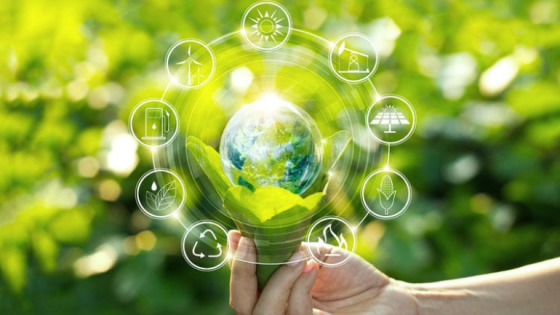Contents
- 1 UAE Climate Governance
- 2 UAE Climate Governance Efforts
- 3 UAE Climate Governance & Environmental Initiatives & Projects
- 3.1 Zayed International Foundation Environment
- 3.2 UAE Ecological Footprint Initiative
- 3.3 Future Energy Company Abu Dhabi (Masdar)
- 3.4 Mohamed bin Zayed Species Conservation Fund
- 3.5 Environmental Commission Card
- 3.6 International Agency for Renewable Energy (IRENA)
- 3.7 UAE Strategies for Green Development
- 3.8 My Environment Program, My City
- 4 UAE Governance and Environmental Awards
- 5 UAE Climate Governance Action Tracker
- 6 UAE Climate Governance Targets and Policies
- 7 National UAE Climate Governance Plan 2017–2050
- 8 UAE Climate Governance Impacts on Well-being
- 9 Focusing on HealthCare Systems & UAE Infrastructure
- 10 Leading Sustainable UAE Climate Governance, Federal National Council
- 11 Clean Tech & UAE Environmental Technologies
- 12 Role of Business in UAE Climate Governance Action
UAE Climate Governance is one of the most pressing environmental challenges at both the national and global levels, given its economic, social, and ecological implications. This topic was given significant and early attention in the UAE, and the government has taken several steps to address the consequences of climate change and adapt to its possible implications for ecosystems and economic sectors. In line with these efforts, the UAE has implemented important policies. One of them is an economic diversification policy that focuses on the green economy, an energy source diversification policy that focuses on renewable and clean energy while also promoting energy efficiency, a sustainable transport policy, and sustainable urban planning.
UAE Climate Governance
The Ministry of Climate Change and Environment, in collaboration with its partners in the public and private sectors, is working to bolster efforts to deal with climate change, in terms of mitigation and adaptation, through the National Climate Change Plan 2050, adopted by the Cabinet in June 2017, and the National Climate Change Adaptation Programme, adopted at the UAE Government’s first annual meeting in September 2017, in addition to other relevant policies and programs. The UAE government recently established the UAE Council on Climate Change and the Environment. The council will form collaborations with the corporate sector, conduct studies, and direct scientific research on the ministry’s operations for the climate crisis.
Read more: UAE Urbanization Impact: Examining Dubai and Abu Dhabi Environmental Changes
UAE Climate Governance Efforts

Most recently, the UAE reaffirmed its commitment to climate change by becoming one of the first countries to sign the Paris Agreement climate summit in September 2016. According to the UAE State of Green Economy Report 2016, the UAE climate law aims to regulate greenhouse gas emissions from important sectors such as heavy industries, oil and gas, construction, and transportation under a national green growth framework known as the Green Agenda 2015–2030.
The UAE’s efforts will be bolstered by a forthcoming national climate change plan, which will be launched under the auspices of the UAE Council of Climate Change and Environment, which was established in 2017 and aims to actively promote the private sector and other stakeholders’ engagement in climate change.
To aid in better policymaking, various research has been done to expand scientific understanding of the impact of climate change in the UAE and the region. The Abu Dhabi Global Environmental Data Initiative (AGEDI) undertook various studies and research on the effects of climate change at the local, national, and regional levels, including terrestrial and marine ecosystems, coastal zones, food security, and water resources.
For example, AGEDI’s coastal vulnerability assessment project resulted in a quantitative assessment of near-term (10–15 years) coastal zone vulnerability associated with climate change through the development of a ‘Coastal Vulnerability Index’ (CVI), addressing the need for sustainable coastal zone management, which is a priority for the UAE given its extensive coastline.
Read more: UAE Tectonic Plates: Understanding Arabian Tectonic Movements and Earthquake Records
UAE Climate Governance & Environmental Initiatives & Projects

The UAE Government has implemented numerous environmental initiatives and programs to improve the condition of the environment. This includes:
Zayed International Foundation Environment
The Zayed International Foundation for the Environment promotes sustainable development through environmental projects, including raising public awareness, resolving sustainability issues, and organizing international and regional conferences, workshops, seminars, and community events. The organization also grants the Zayed International Prize for the Environment, which acknowledges and encourages environmental achievements that are consistent with the vision and philosophy of H. H. the late Sheikh Zayed bin Sultan Al Nahyan, the UAE’s founding President.
UAE Ecological Footprint Initiative
The program intends to highlight the UAE’s ecological footprint and improve it through collaboration between the government and the corporate sector.
Future Energy Company Abu Dhabi (Masdar)
Masdar Company was established in 2006 as a subsidiary of Mubadala Development Company. It aspires to create commercial benefits in the field of renewable energy and sustainable technology while also providing the required foundations for this sector. Masdar City has five business units, including the parent firm.
Mohamed bin Zayed Species Conservation Fund
The Mohamed bin Zayed Species Conservation Fund was founded in October 2008 as a charitable organization dedicated to providing grants and finding unique species conservation activities.
Environmental Commission Card
The purpose of this effort is to encourage industrial enterprises to meet environmental requirements and limit their negative influence on the environment.
International Agency for Renewable Energy (IRENA)
IRENA is an intergovernmental organization that helps countries transition to a sustainable energy future. Since 2009, Abu Dhabi has hosted the International Renewable Energy Agency (IRENA).
UAE Strategies for Green Development
The UAE started the Green Economy Initiative in 2012 under the tagline ‘A green economy for sustainable development,’ intending to make the UAE a global leader in green economy, products, and technology to realize Vision 2021.
My Environment Program, My City
The My City, My Environment program in Dubai plans door-to-door awareness campaigns for families in 22 neighborhoods and 26,000 homes.
Read more: UAE Cartography; The Detailed Geography Political UAE Map
UAE Governance and Environmental Awards
To encourage environmental achievements, the government has issued many local and international certificates of praise. These awards include:
- Zayed International Prize for Environment.
- The Sheikh Mohammed Bin Rashid Prize for Government Excellence.
- Zayed Future Energy Prize.
- Emirati Energy Award.
- Dubai Award for Sustainable Transportation.
- Emirates Environmental Appreciation Award.
Read more: UAE Conservation Biology: United Arab Emirates Winning Wildlife Conservation Efforts
UAE Climate Governance Action Tracker

The April 2024 update expands the research to include the UAE’s net zero targets, as outlined in its revised Long Term Strategy (LTS) submitted to the UNFCCC in January 2024. The UAE was one of the first governments to submit a new NDC to the UNFCCC in the year of its COP leadership, with a stronger emissions reduction target, but it is on track to fall far short of that target. However, there is still too little activity in the real economy. The UAE intends to significantly increase fossil fuel production and consumption by 2030, which contradicts the paths required to keep global warming below 1.5°C.
Through COP, the UAE’s national oil corporation, ADNOC, awarded contracts worth USD 17 billion for the development of the Hail and Ghasha offshore gas resources, as part of a USD 150 billion fossil fuel expansion plan. Emissions from the production and consumption of this gas by 2030 would account for 15-20% of the country’s current domestic emissions. Furthermore, the UAE reportedly intended to utilize its COP presidency to negotiate new oil and gas deals with foreign governments.
Read more: UAE Climatic Zones: Knowledge Portal to Dubai’s Weather
UAE Climate Governance Targets and Policies
This rating shows that the UAE’s climate policy and commitments take little to no action and do not align with the Paris Agreement’s 1.5°C temperature goal. The UAE’s overall ranking has been reduced compared to our previous evaluation, for two reasons. First, we revised the UAE’s historical data, resulting in increased emissions (excluding LULUCF). The current estimates of F-gas emissions in the UAE are much higher, implying larger historical industry emissions. Second, we revised our modeled domestic pathways to reflect the pathways evaluated in the IPCC AR6.
Our redesigned paths better reflect national circumstances, demonstrating that the UAE must reduce emissions more quickly to meet 1.5°C targets. When compared to modeled domestic paths, the CAT classifies the UAE’s policies and activities as “critically lacking.” The “Critically deficient” assessment means that the UAE’s 2030 policies and initiatives take little to no action and are completely inconsistent with the 1.5°C temperature target. If all countries followed the UAE’s strategy, warming would exceed 4°C.
Read more: UAE Climate Overview: A Pivotal Element of Sustainability and Policy
National UAE Climate Governance Plan 2017–2050
The primary goals of the UAE’s National Climate Change Plan 2017–2050 are to manage greenhouse gas (GHG) emissions while maintaining economic growth, reduce risks, improve adaptation capacity to climate change, and enhance the UAE’s economic diversification agenda through innovative solutions.
The UAE’s National Climate Change Plan 2017–2050 is a comprehensive framework for addressing the causes and effects of climate change, planning the transition to a climate-resilient green economy, and improving quality of life. The Climate Plan’s key aims are:
Manage GreenHouse Gas (GHG) Emissions
The UAE’s overall GHG emissions are likely to rise as the economy and population develop. However, the Climate Change Plan seeks to limit emissions and guarantee that climate action contributes to the fulfillment of economic goals.
Minimize Risks & Climate Change Adaptation Improvement
Promoting a climate-resilient economy is critical for the UAE to achieve the transition described in Vision 2021. The Climate Change Plan focuses on a comprehensive and scientific assessment of climate risks and vulnerabilities. It underlines the importance of protecting the economy, infrastructure, people, and ecosystems from the effects of climate change.
UAE Economic Diversity Agenda with Innovative Solutions
As the UAE continues to invest in non-oil sectors with significant development potential, the Climate Change Plan will help to strengthen growth momentum in key growing sectors. This will be accomplished by implementing innovative strategies to provide high-added value for emerging industries, boosting job creation in green firms, and capitalizing on the mutually beneficial relationship between climate action and economic diversification.
UAE Climate Governance Impacts on Well-being
By incorporating climate considerations into public health procedures, the UAE’s health system can become more resilient to the effects of climate change and better prepared for any associated health hazards. The effects of climate change in the UAE and the Middle East are becoming more visible. Climate change is causing extreme weather in the region, including longer droughts, more frequent heat spells, excessive precipitation, and compound impacts on water supplies, all of which will have an impact on agricultural production and water supply.
Furthermore, projections show a decline in winter precipitation, resulting in dryness and desertification across the Middle East. Recent research implies that precipitation is declining and temperatures are rising, increasing the water shortage situation in the Middle East’s semi-arid and dry climates. All of this will have an impact on public health and, as a result, the well-being of individuals.
Read more: UAE Climate and Tourism: A Perfect Blend of Nature and Adventure
Focusing on HealthCare Systems & UAE Infrastructure

The UAE is taking initiatives to combat climate-related health issues. This will require a focus on current building blocks. We will need to strengthen our healthcare systems by focusing on improving infrastructure, capacity, and preparation. Identifying and treating the UAE’s top health priorities, such as cardiovascular disease, cancer, and childhood obesity, will be critical in improving health systems to prevent and manage the health effects of climate change.
We must not forget about research, as much remains unknown. Prioritizing research on climate change-related health issues is critical for informing evidence-based treatments and providing significant insights for effective policy formation. Furthermore, utilizing information and communication technologies (ICT) can improve the UAE’s healthcare response to climate change. Telemedicine, remote sensing, and data analytics can help the health system better prepare for and respond to climate-related health concerns.
These innovations can improve healthcare service, raise adaptive ability, and encourage resilience in the face of climate change. By concentrating on all of these areas, health systems can improve their ability to adapt to the health consequences of climate change, increase public health resilience, and contribute to regional sustainability.
Leading Sustainable UAE Climate Governance, Federal National Council
As part of the IPU’s climate campaign, Parliaments for the Planet, they are highlighting good climate practices from parliaments throughout the world that can be reproduced elsewhere. The Federal National Council (FNC) of the United Arab Emirates (UAE) sets a strong model for sustainability and greening parliament. The UAE’s commitment to a greener future has resulted in the establishment of a dedicated committee in 2022.
The committee’s major purpose is to develop the FNC into a sustainable model that will serve as an inspiration to parliaments around the world, not only in the UAE. The “Complaint Acceleration Mechanism” is a unique tool that allows citizens to voice their climate concerns online, decreasing processing times and expenses dramatically.
The Council is also taking substantial measures toward a greener commute, implementing a hybrid work system and moving its vehicle fleet from high-emission vehicles to electric or hybrid automobiles equipped with charging facilities. Through digitization, the FNC has gone paperless, streamlined operations, and cut energy usage and waste production.
The FNC lowered its energy use by switching to virtual servers, which eliminates the requirement for on-site servers. This strategy not only streamlines operations but also lowers carbon emissions. More recently, in July 2023, the FNC introduced a CO2 dashboard.
The new FNC headquarters in Dubai exemplifies sustainable construction standards, with advanced environmental features that promote energy conservation, waste reduction, and improved interior air quality. The FNC is also devoted to effective trash management by working with recycling firms and exhibiting responsible waste disposal methods.
Read more: UAE Carbon footprint; reasons, ranking, and calculator
Clean Tech & UAE Environmental Technologies
The UAE offers numerous prospects for US exporters in the clean technology and environmental technology industries. The UAE management of climate wants to be a global climate leader in the fight against the climate problem. The UAE has promised to achieve net zero carbon emissions by 2050 and plans to invest $163 billion in clean and renewable energy, as well as crucial technology. The UAE is also expanding its public Green Zone programming to include two major conferences, Abu Dhabi Sustainability Week (ADSW) and the Global Manufacturing and Industrialization Summit (GMIS).
The UAE has made tremendous progress in urban infrastructure development as it seeks to transition from a hydrocarbon-focused to a knowledge-based economy. The UAE has one of the world’s highest per capita energy and water usage rates, resulting in a significant carbon footprint. The UAE is one of the world’s driest countries. With few natural freshwater supplies, the country relies on desalinated seawater to supply its drinking water needs.
Read more: UAE Groundwater Reserves: Abu Dhabi’s Arab Water Resources and Groundwater Recharge Levels
Role of Business in UAE Climate Governance Action
While praising the UAE’s environmental legacy, the boldness of its strategy, and the management of climate-related financial risks, Paul Polman noted that many nations and global institutions are not working successfully. He urged that “enterprises must step up and help fill this hole.” He stated that achieving the world’s Sustainable Development Goals will be unachievable unless businesses take on more responsibilities.
According to Polman, corporations that focus solely on becoming “less terrible” are not doing enough. He believes firms must become “net positive,” which means restorative, regenerative, and reparative. He asked, “How can companies profit by solving the world’s issues rather than causing them?”. Drawing on his previous work, Polman proposed the following characteristics of a net-positive company:
- Accepts responsibility for the overall impact on society, which extends throughout a company’s value chain.
- Improves returns for all stakeholders, including employees, communities, value-chain partners, the environment, and future generations.
- Collaborates with governments and civic society to drive greater systemic change.
Polman believes that to encourage corporations to become more accountable, they should “measure what they value.” Polman believes that more focus on ESG will come from governments and financial markets, requiring greater disclosure and openness on important metrics.
Read more: UAE Green Spaces; Nurturing Nature Amidst Urban Landscapes
What is the UAE government’s approach to climate governance?
The UAE government emphasizes robust climate governance through comprehensive policies, international cooperation, and innovative initiatives. It aims to lead by example in global climate governance by setting ambitious climate targets and implementing sustainable practices.
How does the UAE’s climate governance initiative align with global standards?
The UAE’s climate governance initiative aligns with global standards by actively participating in international climate agreements and collaborations. The UAE Cabinet endorses policies that contribute to reducing greenhouse gas emissions and promoting renewable energy, positioning the country as a leader in global climate governance.
How is UAE citizenship by investment connected to climate governance?
UAE citizenship by investment indirectly supports climate governance by attracting investors who contribute to sustainable projects and initiatives. This influx of capital can be directed towards green technologies, renewable energy projects, and sustainable infrastructure, reinforcing the UAE’s climate goals.
How does the UAE climate map contribute to climate governance?
The UAE climate map provides detailed information on the country’s climate patterns and vulnerabilities. This data supports informed decision-making and the development of targeted climate change policies and initiatives, enhancing the UAE’s overall climate governance framework.
UAE Climate Governance demonstrates the UAE Government’s commitment to exemplary management of climate change. With ambitious climate targets set by the UAE Council, the United Arab Emirates is poised to lead at global levels. Through strategic initiatives and robust policies, the UAE is not only addressing climate change domestically but also setting a standard for sustainable development worldwide. This proactive approach underscores the nation’s dedication to a resilient and environmentally responsible future.
